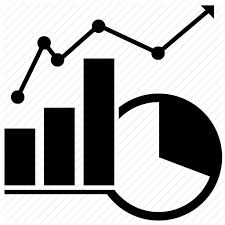Economic diagnostics of the quality of higher education and the basics of its modeling
Abstract
The article analyzes the quality of higher education and its economic diagnosis. Defined methods for modeling economic diagnostics. There are scientific conclusions and practical recommendations on the economic assessment of the quality of higher education.
References
Mirziyoev Sh.M. Together we will build a free and prosperous, democratic Uzbekistan. Speech at the joint meeting of Chambers of Oliy Majlis dedicated to the inauguration of the President of the Republic of Uzbekistan. 13-14.
The Resolution of the President of the Republic of Uzbekistan dated June 5, 2018 N PP-3775 "On additional measures to improve the quality of education in the higher educational institutions and their active participation in large-scale reforms in the country". http://www.lex.uz/docs/3765586
Naimushin A.I. The structure of the education quality management system: the main directions of development // J. Innovative technology. - 2004, No. 1. S. 7.
Lazar Vlasceanu, Laura Griinberg, and Dan Parlea. (2004). Quality Assurance and Accreditation: A Glossary of Basic Terms and Definitions. Bucharest: UNESCO [ISBN 92-9069-178-6].
Levshina V.V. Development of the methodology of creating a quality management system of a university // J. University Management. - 2003, No. 2. P. 1.
Mirkurbanov N., Anoshkina V., Danilova E. Higher education in Uzbekistan: status and recommendations // J. Analytical note. - 2009. No. 1 (12), B. 24-28.
Karimov A.A., Peregudov L.V. Fundamentals of the monitoring and quality management system of higher education. - T .: 2003. p. 46 .;
Saidov M. Management and Economics of Higher Education. - T.: 2002. b. 51.
Drohobytsky I.N. System analysis in economics: mathematical methods in economics, applied informatics.-M .: 2011.https://economics.studio/metodyi-ekonomike-matematicheskie/model-chernogo-yaschika-86127.html
“ Regulation on the assessment system of student learning in higher education institutions ” http://www.edu.uz/en/pages/terms-rated
Spiridonova S. Management of the quality of educational services in the system of higher professional education // J. Vestnik, 2002. No. 2. http://www.vestnik.vsu.ru/pdf/educ/2002/02/spiridonova.pdf
Bazarbekova A.D. Economic diagnostics of private higher education activities: organization and methodology// Procedia Economics and Finance 5 (2013) 93 – 102. http://booksc.org/book/25090701/b2a361

In submitting the manuscript to the International Journal on Integrated Education (IJIE), the authors certify that:
- They are authorized by their co-authors to enter into these arrangements.
- The work described has not been formally published before, except in the form of an abstract or as part of a published lecture, review, thesis, or overlay journal.
- That it is not under consideration for publication elsewhere,
- The publication has been approved by the author(s) and by responsible authorities – tacitly or explicitly – of the institutes where the work has been carried out.
- They secure the right to reproduce any material that has already been published or copyrighted elsewhere.
- They agree to the following license and copyright agreement.
License and Copyright Agreement
Authors who publish with International Journal on Integrated Education (IJIE) agree to the following terms:
Authors retain copyright and grant the International Journal on Integrated Education (IJIE) right of first publication with the work simultaneously licensed under Creative Commons Attribution License (CC BY 4.0) that allows others to share the work with an acknowledgment of the work's authorship and initial publication in this journal.





1.png)
